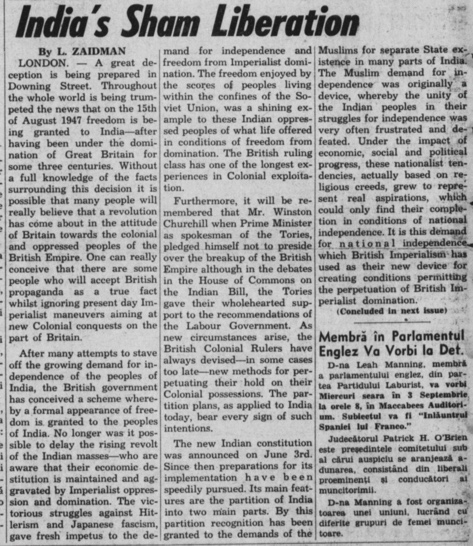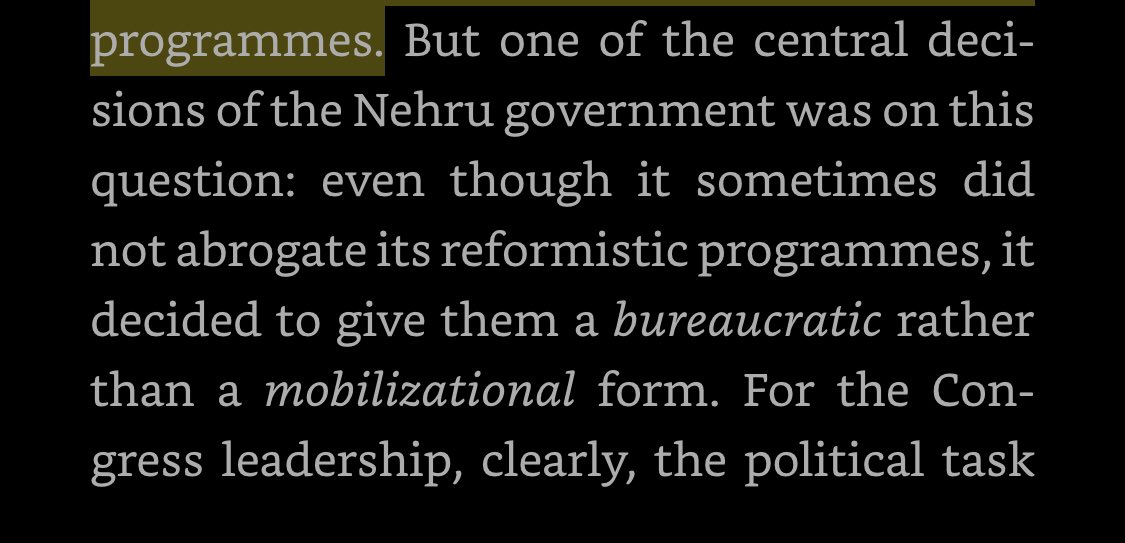
The Evening Star, July 5, 1947
"This Changing World"
"Partition of India Offers Red Leaders Chance for Infiltration and Intrigue"
(common theme in American coverage during this period, unsurprisingly)
#Partition1947
"This Changing World"
"Partition of India Offers Red Leaders Chance for Infiltration and Intrigue"
(common theme in American coverage during this period, unsurprisingly)
#Partition1947

"The impending partition of India provides a subject for close scrutiny by policy-makers in Washington, who are concerned over the change which the creation of Hindustan and Pakistan will work on big power relationships throughout the world"
"Hitherto India has not possessed any independent influence in world affairs, although the frequent conflicts between the Hindu and Moslem communities and between each of them and Britain have had reverberations in other parts of the world"
"India's influence in world affairs has always been felt through the British Empire, which it provided with tremendous strength and resources, both in men and materials"
"India was particularly important to the Allied causes during World War II, and although she was officially at war with the Axis, the intense hatred among many of her factionalists for both Britain and the United States gave rise to something resembling a fifth column..."
"of the rear of the men fighting on the Burma front... As long as Britain was the dominant power in India the vacuum was filled and there was little danger of any heavy infiltration of influence from the Soviet Union to the north"
"With Britain out of India an ideal situation may exist for Soviet intrigue and exploitation. Russian aspirations in India are not new. under the Czars Russia made herself a source of constant worry to the British"
"Russian agents found their way into many of the northern and northwestern provinces. Today there is a nucleus of a large Communist Party in India, and there is a social structure-- with the remnants of the caste system-- which is vulnerable to Communist exploitation"
"The program of the Western nations in the future will embrace the task of winning the two new Indian states to the cause of democracy. Western democracy, as one bulwark against further Russian aggrandizement"
"This will not be easy, for the Orient traditionally has been devoted to authoritarian rather than democratic systems. But to survive, India must trade and for her own profit she can do best to hitch her wagon to the economic star of the West"
"The new American ambassador to India, Henry F. Grady, once was closely affiliated with the Reciprocal Trade Program of Cordell Hull. Perhaps it is with an eye to winning Hindustan and Pakistan to the economy of the West that he was sent to New Delhi"
• • •
Missing some Tweet in this thread? You can try to
force a refresh












